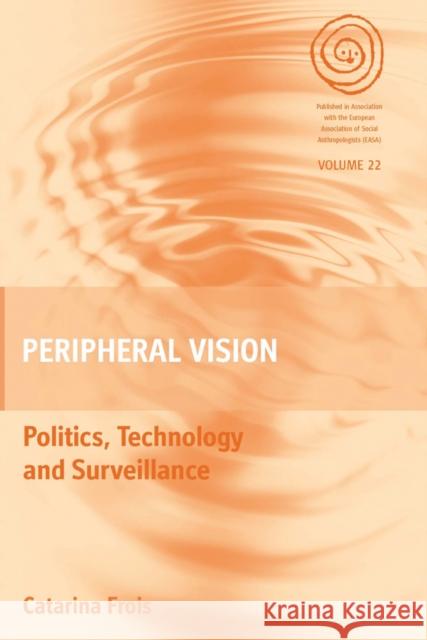Peripheral Vision: Politics, Technology, and Surveillance » książka
Peripheral Vision: Politics, Technology, and Surveillance
ISBN-13: 9781782380238 / Angielski / Twarda / 2013 / 176 str.
In Portugal between 2005 and 2010, "modernization through technology" was the major political motto used to develop and improve the country's peripheral and backward condition. This study reflects on one of the resulting, specific aspects of this trend--the implementation of public video surveillance. The in-depth ethnography provides evidence of how the political construction of security and surveillance as a strategic program actually conceals intricate institutional relationships between political decision-makers and common citizens. Essentially, the detailed account of the major actors, as well as their roles and motivations, serves to explain phenomena such as the confusion between objective data and subjective perceptions or the lack of communication between parties, which as this study argues, underlies the idiosyncrasies and fragilities of Portugal's still relatively young democratic system.
In Portugal between 2005 and 2010, “modernization through technology” was the major political motto used to develop and improve the country’s peripheral and backward condition. This study reflects on one of the resulting, specific aspects of this trend—the implementation of public video surveillance. The in-depth ethnography provides evidence of how the political construction of security and surveillance as a strategic program actually conceals intricate institutional relationships between political decision-makers and common citizens. Essentially, the detailed account of the major actors, as well as their roles and motivations, serves to explain phenomena such as the confusion between objective data and subjective perceptions or the lack of communication between parties, which as this study argues, underlies the idiosyncrasies and fragilities of Portugal’s still relatively young democratic system.











